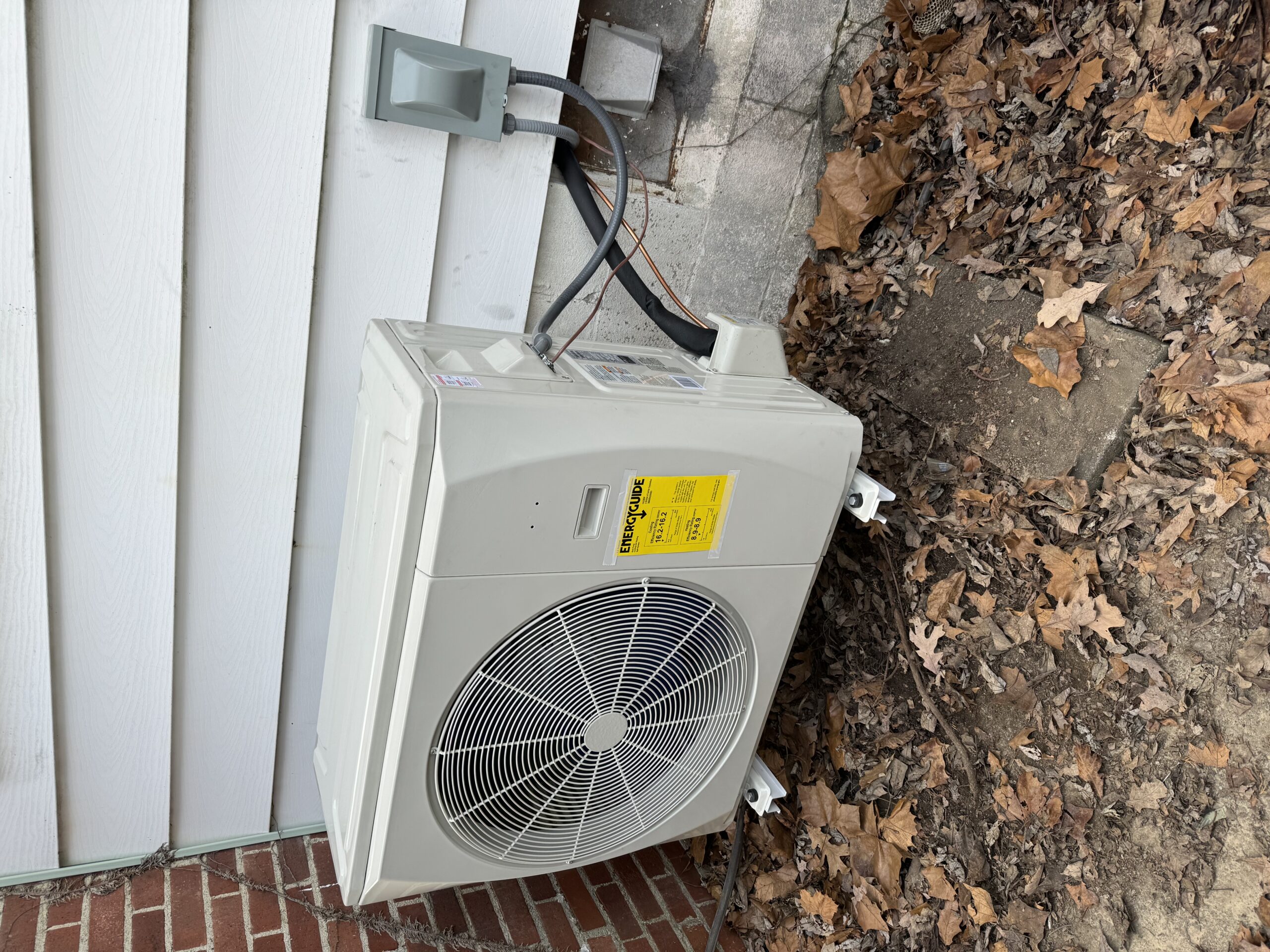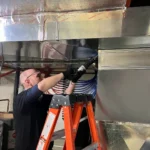Copper wiring plays a vital role in the efficient operation of residential air conditioning systems. Among the various types of wires, solid 18 gauge copper wire stands out as a reliable choice for low-voltage applications. From thermostat connections to relay controls, this wire type is indispensable in ensuring seamless communication and power transfer within HVAC setups. Understanding where and how this specific wire is used not only helps homeowners appreciate its significance but also aids in maintaining a well-functioning air conditioning system.
What Is Solid 18 Gauge Copper Wire?
Solid 18 gauge copper wire is a single-strand conductor made from high-quality copper. Measuring about 0.0403 inches in diameter, this wire is designed for low-voltage applications, such as those typically found in HVAC systems.
Key Features
- Durability
Solid wires are more resistant to bending and breaking compared to stranded wires, making them ideal for fixed installations. - High Conductivity
Copper, as a material, offers excellent electrical conductivity, ensuring efficient signal and power transmission. - Ease of Installation
The single-strand design allows for secure connections in terminals and reduces the likelihood of loose or faulty wiring. - Cost-Effective
For low-voltage applications, 18 gauge copper wire strikes the perfect balance between affordability and performance.
How Is Solid 18 Gauge Copper Wire Used in Residential AC Installation?
In residential air conditioning systems, solid 18 gauge copper wire plays several critical roles. These include thermostat wiring, control connections, and relay activations. Let’s explore each in detail.
1. Thermostat Wiring
Thermostats serve as the central control hub for HVAC systems, dictating when and how your air conditioner operates. Solid 18 gauge copper wire is commonly used to establish the necessary connections between the thermostat and the air conditioning system.
- Why It’s Used
- The wire’s reliable conductivity ensures accurate signal transmission from the thermostat to the system’s components.
- Its solid structure creates secure connections in the terminals, reducing the chance of interruptions.
- Examples in Action
- For basic HVAC systems, a two-wire setup using 18 gauge copper wire handles heating and cooling signals. More advanced systems may use multi-wire configurations to manage features like fan speed control or zoning.
2. Control Wiring Between Components
In a central air conditioning system, various components—such as the indoor air handler, outdoor compressor, and furnace—must communicate effectively. Solid 18 gauge copper wire serves as the communication line for these connections, transmitting low-voltage signals that coordinate the system’s operations.
- Why It’s Used
- Its robustness minimizes the risk of disconnections or signal degradation.
- The wire’s thickness is sufficient to carry low-voltage signals without significant resistance.
- Practical Applications
- Connecting the thermostat to the compressor relay.
- Establishing communication between the indoor and outdoor units to synchronize cooling cycles.
3. Relay and Switch Connections
Relays and switches in an air conditioning system control the flow of power to essential components like the compressor and fan motors. Solid 18 gauge copper wire is often used to wire these critical elements.
- Why It’s Used
- The wire provides stable, low-resistance connections that ensure reliable relay activation.
- Its solid construction is less prone to wear, especially in systems subject to frequent on/off cycles.
- Examples in Action
- A relay that activates the outdoor condenser fan might use 18 gauge copper wire to ensure consistent performance.
4. Low-Voltage Power Distribution
HVAC systems often require low-voltage power for certain components, such as control boards or sensors. Solid 18 gauge copper wire is an excellent choice for distributing this power due to its conductivity and cost-efficiency.
- Why It’s Used
- Its size and capacity are ideal for low-voltage currents.
- The wire maintains consistent power flow, reducing the risk of operational disruptions.
Advantages of Using Solid 18 Gauge Copper Wire
1. Stability and Reliability
The solid construction of 18 gauge copper wire ensures it holds its shape and position, even in environments with vibrations, such as near compressors or fans. This durability translates to fewer maintenance issues over time.
2. Superior Conductivity
Copper is one of the best conductors of electricity, making it ideal for HVAC systems where even small losses in efficiency can impact performance.
3. Ease of Handling
Solid wires are easy to work with, especially when securing them in screw terminals or quick-connect clips. This simplifies installation and minimizes the risk of loose connections.
4. Resistance to Environmental Stress
In controlled environments, such as inside walls or conduits, solid copper wire is highly resistant to wear and tear, ensuring long-term reliability.
Factors to Consider When Using Solid 18 Gauge Copper Wire
While solid 18 gauge copper wire is a reliable choice, there are important considerations to keep in mind
1. Length of Wire and Voltage Drop
As the length of the wire increases, so does the potential for voltage drop, which can affect system performance. For longer runs, ensure the wire meets the system’s specifications.
2. Environmental Conditions
In areas prone to moisture, such as basements or outdoor installations, additional insulation or protective coverings may be required to prevent corrosion.
3. Code Compliance
Local building and electrical codes dictate specific requirements for wire type and gauge in HVAC systems. Always verify compliance before installation.
Alternatives to Solid 18 Gauge Copper Wire
While this wire type is widely used, certain scenarios may call for alternatives
- Stranded Copper Wire
- More flexible than solid wire, making it suitable for installations requiring frequent bending or movement.
- Heavier Gauge Wires
- For applications requiring higher current loads or longer runs, 16 or 14 gauge wires may be preferable to minimize voltage drop.
- Aluminum Wire
- Occasionally used in HVAC systems but less conductive and more prone to oxidation than copper.
Tips for Maintaining HVAC Wiring
Proper maintenance of your HVAC system’s wiring is essential for optimal performance and longevity.
1. Inspect Connections Regularly
Loose or corroded connections can disrupt system functionality. Check all terminals periodically to ensure they are secure.
2. Protect Against Corrosion
Use dielectric grease or terminal covers to prevent oxidation, particularly in outdoor components.
3. Replace Damaged Wires Promptly
Frayed or broken wires can lead to shorts or system failures. Replace them immediately to avoid further complications.
4. Keep Wiring Organized
Bundle and secure wires to prevent tangling or accidental damage during routine system maintenance.
Common Mistakes to Avoid When Using Solid 18 Gauge Copper Wire
1. Using the Wrong Gauge for the Application
While 18 gauge wire is ideal for low-voltage applications, using it for higher voltage or current can lead to overheating or system damage.
2. Failing to Secure Connections Properly
Loose connections can cause intermittent issues or system malfunctions. Always tighten screws or clamps securely.
3. Ignoring Environmental Factors
Exposure to moisture, heat, or pests can degrade unprotected wires. Use appropriate coverings or conduits in such environments.
Solid 18 gauge copper wire is a cornerstone of residential air conditioning installations, serving critical functions in thermostat wiring, control connections, and low-voltage power distribution. Its durability, conductivity, and cost-effectiveness make it an indispensable component of any reliable HVAC system.
By understanding its applications, advantages, and maintenance requirements, homeowners and technicians can ensure the optimal performance of their air conditioning systems. Whether you’re installing a new system or maintaining an existing one, the role of solid 18 gauge copper wire cannot be overstated—it’s the backbone of seamless, efficient cooling.







